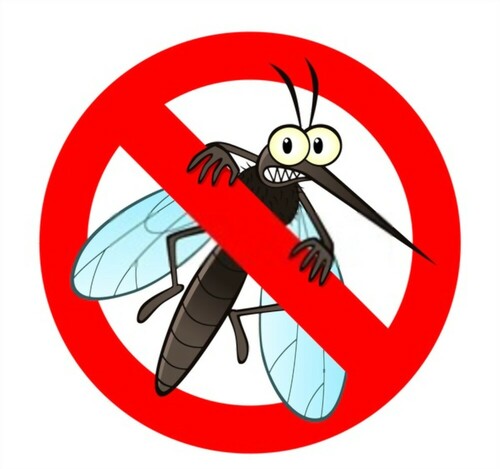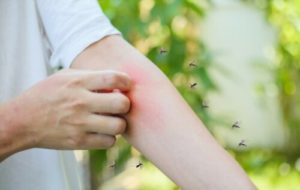 It won’t be long before spring transcends into summer. What can be better than being outdoors in the warm days and evenings, enjoying time with friends and family, maybe having a picnic or BBQ. Perhaps you’re already enjoying warmer spring weather. But there’s a menace lurking to destroy these happy times, and not just one but literally hundreds and thousands, the foe better known as insects. They feast on us, biting, sucking blood, destroying the mood and our skin. Meanwhile ants and flies become unwanted houseguests.
It won’t be long before spring transcends into summer. What can be better than being outdoors in the warm days and evenings, enjoying time with friends and family, maybe having a picnic or BBQ. Perhaps you’re already enjoying warmer spring weather. But there’s a menace lurking to destroy these happy times, and not just one but literally hundreds and thousands, the foe better known as insects. They feast on us, biting, sucking blood, destroying the mood and our skin. Meanwhile ants and flies become unwanted houseguests.
 There are many products on the market that can help to keep the biting insects away but they are filled with harsh chemicals, for instance deet, cyfluthrin (also known as baythroid) and permethrin, all of which which can cause irritation, redness and swelling, especially if left on the skin too long. They can also cause damage to synthetic fabrics.
There are many products on the market that can help to keep the biting insects away but they are filled with harsh chemicals, for instance deet, cyfluthrin (also known as baythroid) and permethrin, all of which which can cause irritation, redness and swelling, especially if left on the skin too long. They can also cause damage to synthetic fabrics.
The good news is that there are also natural alternatives available – essential aroma oils. Better still, as well as being effective insect repellents they also impart a range of further benefits to the body and mind.
Here’s five top picks to keep the bugs away:
Peppermint Essential Oil
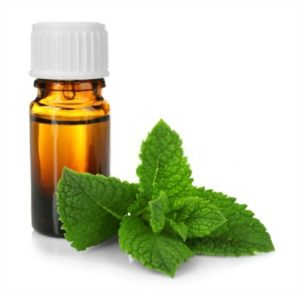 Whilst most people love the crisp clean, refreshing and energising smell of peppermint, to insects and some other pests such as spiders and mice, it is totally abhorrent. In fact, in nature the stick insect emits a milky substance with a peppermint aroma to keep its predators at bay! Researchers have verified that peppermint oil repels mosquitoes, with one study showing that oil applied to just one arm kept both arms bite-free for 150 minutes. Peppermint oil also has a cooling effect on the skin and can help to relieve the burning, stinging, and itching associated with bites or stings.
Whilst most people love the crisp clean, refreshing and energising smell of peppermint, to insects and some other pests such as spiders and mice, it is totally abhorrent. In fact, in nature the stick insect emits a milky substance with a peppermint aroma to keep its predators at bay! Researchers have verified that peppermint oil repels mosquitoes, with one study showing that oil applied to just one arm kept both arms bite-free for 150 minutes. Peppermint oil also has a cooling effect on the skin and can help to relieve the burning, stinging, and itching associated with bites or stings.
How to use: Add a few drops to a diffuser or oil burner. Make a spray by adding a few drops of peppermint oil to water and use to wipe down surfaces and clean around doors and windows to keep ants, aphids, bed bugs, beetles, cockroaches, fleas, flies, gnats, head lice, mice, moths, spiders, ticks and wasps out of your home. Or place a few drops on a cotton ball and place it near windows and doors or wherever you suspect they enter. You can also use the spray on yourself to act as an insect repellent, or alternatively can add a few drops to a carrier oil or favourite lotion, however do ensure to make a patch test first as peppermint is very strong and can cause irritation. Peppermint oil should not be used on young children.
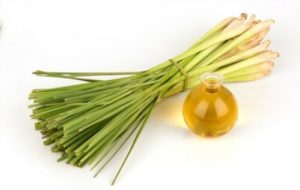 Lemongrass Essential Oil
Lemongrass Essential Oil
Due to the active compounds citral and citronellal, in addition to geraniol and linalool, lemongrass has a strong lemon scent and is able to repel mosquitoes. It effectively disrupts the mosquito’s sense of smell and subsequently minimises their host-seeking behaviour. Studies have confirmed its effectiveness against mosquitoes, with one study showing 74-95% repelancy for 2.5 hours, and another 98.8% protection against the variety of mosquito the y were testing on. The uplifting aroma is also an effective repellent against chiggers (harvest mites), fleas, flies, gnats and ticks.
How to use: Add a few drops to a diffuser or oil burner. Make a spray by adding a few drops of lemongrass oil to water and spray yourself, or alternatively add a few drops to a carrier oil or favourite lotion, however it is always recommended to make a patch test first.
Orange Essential Oil
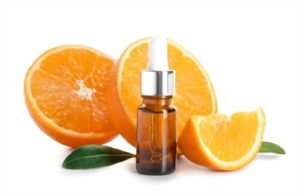 With a 90-95% content of limonene (also called d-limonene), orange essential oil is lethal to fire ants, flies and fleas, which is why it is also used as commercial insecticide. Meanwhile, whilst we find the citrusy sweet aroma uplifting and cheerful, other insects such as ants, cockroaches, gnats, lice, mosquitoes, moths, silverfish, spiders, ticks, and weevils absolutely detest the smell and will avoid it.
With a 90-95% content of limonene (also called d-limonene), orange essential oil is lethal to fire ants, flies and fleas, which is why it is also used as commercial insecticide. Meanwhile, whilst we find the citrusy sweet aroma uplifting and cheerful, other insects such as ants, cockroaches, gnats, lice, mosquitoes, moths, silverfish, spiders, ticks, and weevils absolutely detest the smell and will avoid it.
How to use: Add a few drops to a diffuser or oil burner. Make a spray by adding a few drops of orange oil to water and spray yourself, or alternatively add a few drops to a carrier oil or favourite lotion, however it is always recommended to make a patch test first. Note that orange oil may cause photosensitivity, so avoid direct exposure with the sun after application. Do not spray near cats.
 Lavender Essential Oil
Lavender Essential Oil
The soothing aroma of lavender is another which is totally abhorrent for mosquitoes, thanks to the presence of the active compound linalool which overloads their olfactory organs, in a similar manner to deet. It is also effective against ants, bed bugs, chiggers, cockroaches, fleas, flies, gnats, moths, spiders, ticks and wasps. The soothing analgesic and anti-inflammatory properties of lavender can also relieve the stinging and itching of bites.
How to use: Add a few drops to a diffuser or oil burner. Make a spray by adding a few drops of lavender oil to water and spray yourself, or alternatively add a few drops to a carrier oil or favourite lotion, however it is always recommended to make a patch test first.
 Tea Tree Essential Oil
Tea Tree Essential Oil
Tea tree oil is probably best known as a remedy for bites and stings, but studies have shown that the active compound 1,8-cineole contained in tea tree oil is an effective insect repellant, most effective for ants, bed bugs, dust mites, gnats, mosquitoes and spiders. In fact it has been shown to be toxic to certain species of ants and beetles.
How to use: Add a few drops to a diffuser or oil burner. Make a spray by adding a few drops of tea tree oil to water and spray yourself, or alternatively add a few drops to a carrier oil or favourite lotion, however it is always recommended to make a patch test first.
Don’t let uninvited guests ruin your fun. Use essential aroma oils to stop the gatecrashers, they’re good for your skin, health and the environment.

